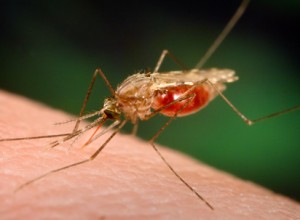Malaria kills 0.5% of children in Upper West
 The Upper West Region has from the period January – June 2016 a recorded malaria case fatality rate of 0.5 percent among children under five years.
The Upper West Region has from the period January – June 2016 a recorded malaria case fatality rate of 0.5 percent among children under five years.
Within the same period, a total of 200,086 number of suspected cases were recorded by health facilities in the Region and out of this 137,127 were tested and 69,926 proved positive.
Mr Titus Tagoe, the Upper West Regional Malaria Focal Person, disclosed this during a Regional Stakeholders Meeting organized by the Institute of Social Research and Development (ISRAD) – Ghana in Wa.
He said malaria was endemic in Ghana but was more pronounce in the rural areas as compared to the urban areas.
He said statistics from the 2014 Ghana Demographic Health Survey (GDHS) indicates that the malaria prevalence among children less than five years of age ranged from 11.2 per cent in the Greater Accra Region to 40 per cent in the Northern Region.
Prevalence of the parasite in rural Ghana, he said, was 37.7 per cent and 15 per cent in urban Ghana.
Mr Tagoe said malaria was confined to Africa, South America and Asia, adding that it was prevalent in 110 countries and territories.
He said an estimated 2,400 million people were at risk of the disease with over 500 million cases being reported every year.
This, he said, reduced economic growth by 1.3 per cent and took about 40 per cent public health expenditure in endemic countries.
Mr Issah Hassan Mubarack, the Regional Coordinator of ISRAD, said despite concerted efforts by key stakeholders to reduce the disease, malaria still remained the leading cause of morbidity and illness in the country.
He said it was for this reason that ISRAD was implementing the “Advocacy for Malaria Stoppage (ARMS)” project to contribute to reduce the incidence of malaria in Ghana.
He explained that the project would select a group of five persons in every six district of the 10 regions of the nation to advocate for the release of the 0.5 per cent of the District Responsive Initiative for the prevention of malaria.
He said ISRAD believed strongly that when these funds were channeled through Ghana Health Service (GHS) for the work of malaria prevention, it would go a long way to help reduce the malaria burden in various districts.
Source: GNA
